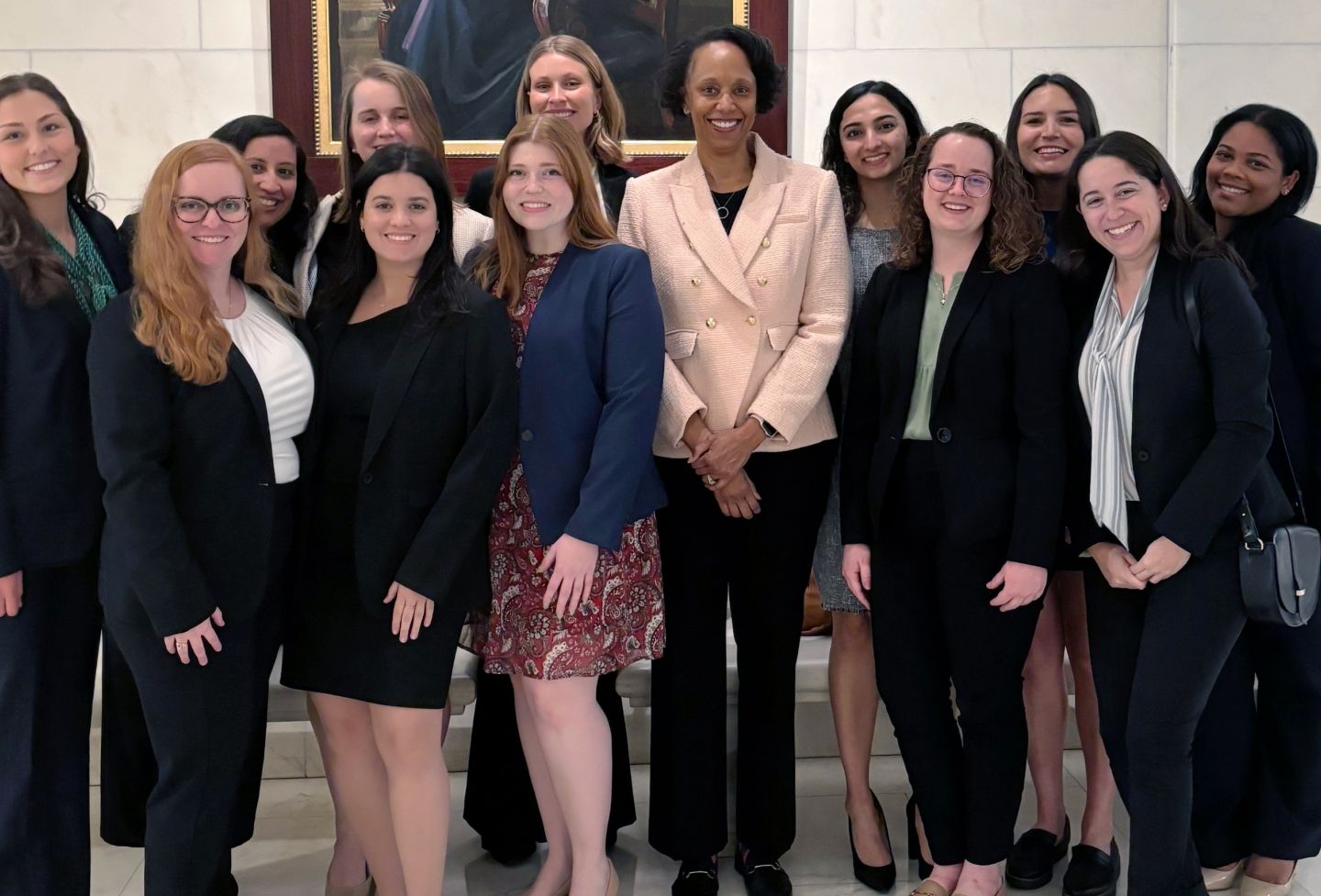On a sunny winter morning, law students follow a path on the immaculate grounds of Morven Farm. The trail, paved at this end, extends through agricultural plots and rolling hills, but returns to its natural state as it crosses into neighboring properties.
Many years ago, Native American hunters, slaves and U.S presidents all trod the same route.
A new class offered this semester by the University of Virginia School of Law, titled Conservation Planning and Law, is asking students to study the legal needs of Morven Farm, Monticello and other properties in this historic corridor near Charlottesville in hopes of knitting together a six-mile stretch of land that can be utilized — legally and seamlessly — as an educational trail.
The students will provide legal research and analysis to the University working group exploring the possibility of establishing and curating a Morven trail.
"We're just trying to inform, from our expertise, the planning and strategizing," Professor Jonathan Z. Cannon told students in their first meeting with Stewart Gamage, a member of the working group and Morven's program director.
Cannon, who directs the Law School's Environmental and Land Use Law Program, is teaching the class with Professor J.H. "Rip" Verkerke, an expert in contract law and a board member of the Rivanna Trails Foundation.
Over the course of the three-credit seminar, students will have the opportunity to research issues of public use, access and liability; learn about property instruments used in the creation of conservation sites; and investigate the legal and institutional means by which natural and cultural sites are recognized and protected. The law seminar is being conducted in coordination with a seminar offered by the Planning Department of UVA's School of Architecture.
The end goal — which may not be reached for years — is that all legal obstacles to connecting Morven with President James Monroe’s Ash Lawn–Highland estate and President Thomas Jefferson’s Monticello estate, as well as potentially other Charlottesville-area properties, be addressed.
"So there are salient questions about who owns the land, and under what terms, and who would be involved in making those decisions," Cannon said.
"It's a great case study," Gamage added. "The issue of governance is essential, and there are multiple decision-makers."
She said the diverse objectives and concerns of the property holders and the neighborhood provide the foundation for the study. “Local zoning, donor gift agreements, preservation of the cultural historic landscape property access and legal liability — all play a role in the location and development of a future trail," she said.
The class is composed of about a dozen students, first-year through third-year. Edge Harris '17 said he will be working for a title company after graduation and wanted to take the class to add to his experience working with clients on related issues.
In his job, "I'm going to be viewing these [land acquisitions] after the deals are already made, and figuring out how that affects the insurance policy holder," Harris said.
The University of Virginia Foundation, which owns Morven, recently received a $35,000 planning grant from the Dominion Foundation, the charitable arm of Dominion Resources, to investigate the potential trail. The farm was a donation from late billionaire philanthropist John W. Kluge.
Other projects to be tackled by the class include planning for the Three Notch'd Trail (a trail linking Charlottesville to the Crozet Tunnel in Afton), extensions of the Rivanna Trail loop encircling Charlottesville and a collaboration with the Piedmont Environmental Council.
Founded in 1819, the University of Virginia School of Law is the second-oldest continuously operating law school in the nation. Consistently ranked among the top law schools, Virginia is a world-renowned training ground for distinguished lawyers and public servants, instilling in them a commitment to leadership, integrity and community service.


